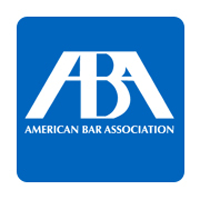ABA sues over feds' disqualifications of lawyers from Public Service Loan Forgiveness program

Corrected: The American Bar Association announced Tuesday it is suing the U.S. Department of Education following its decision to drop some public interest lawyers from the federal government’s Public Service Loan Forgiveness program.
The action (PDF) was filed in the U.S. District Court for the District of Columbia. Plaintiffs include current and former ABA employees.
“Paying off what can often be substantial student debt while working a public service job is difficult,” Linda A. Klein, president of the ABA, said in a statement about the lawsuit. “The PSLF program promised these dedicated lawyers a chance at financial stability in return for doing public service work. After following the rules, these people had the rug pulled out from under them. We cannot tolerate these actions of the Department of Education.”
Part of the College Cost Reduction and Access Act of 2007, the PSLF program automatically includes charitable nonprofit employers that have been designated as tax-exempt under 501(c)(3) of the Internal Revenue Code. Other nonprofits with different tax statuses can also meet eligibility criteria if they “provide certain types of qualifying services,” according to the Department of Education’s federal student aid website, including “public education.”
Organizations recently denied employer certification for the PSLF program include the American Bar Association, which has 501(c)(6) status, the American Immigration Lawyers Association and some American Civil Liberties Union offices. In earlier years, the government told some of those lawyers that they did qualify for the program.
Besides working for a 501(c)(3) or a nonprofit that provides specific services, those eligible for the program must work in public service for 10 years and make 120 qualifying loan payments after Oct. 1, 2007. Jobs with labor unions, partisan political organizations and for-profit groups do not qualify.
“We are committed to implementing the Public Service Loan Forgiveness program in accordance with the final regulations as prescribed by statute, which were negotiated in 2008 and finalized in October of that year,” a U.S. Department of Education spokesperson told the ABA Journal on Tuesday.
The first forgiveness of loan balances is expected in October 2017.
“I’ve been here for two-and-a-half years, and my job has been to improve public defender systems in the United States. It’s pure public interest work,” says Geoffrey Burkhart, a plaintiff in the case. Burkhart, a lawyer who works for the ABA’s Division of Public Services, got the job in June 2014 after a stint with Illinois’ Office of the State Appellate Defender.
FedLoan Servicing in July 2014 sent Burkhart a letter with notification that he “was approved,” the complaint states. In October 2016 he got another FedLoan Servicing letter, which informed him that following “further research and after consulting with the Department,” it had reversed its position, on the basis that his employer did not qualify for a qualifying service.
“With no warning and no coherent explanation, the department then changed its mind. As a result, these individuals were told that their years of public service counted for naught, their debt loads continued to mount, and their hopes of future financial security were suddenly dashed,” the complaint reads. “Many nonprofit organizations, the ABA among them, will now struggle to attract and retain the talented, committed professionals that the organizations need to address critical unmet public needs. The Department’s actions violate law and are contrary to basic principles of fairness and deeply damaging to the critical public service missions of these plaintiffs and the ABA.”
Prior to the lawsuit being filed, the ABA has written (PDF) to and met with various department officials over the past year, the lawsuit states. Jack Rives, executive director and chief operating officer of the ABA, received word Dec. 15 that the department was standing by its decision, in a letter dated Dec. 1 from Ted Mitchell, Under Secretary of Education.
“Everyone understands how unfair it is to apply new, unexplained “rules” retroactively,” Rives told the ABA Journal. “It is very disappointing that the Under Secretary nonetheless chose to reaffirm those egregiously unfair policies.”
Updated Dec. 23 to correct the date that the ABA received the letter dated Dec. 1 from the U.S. Department of Education.



